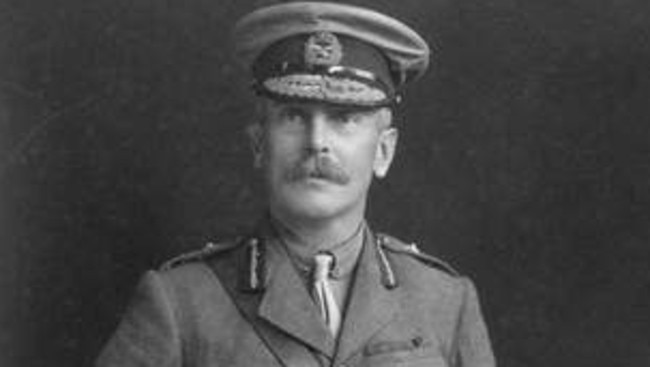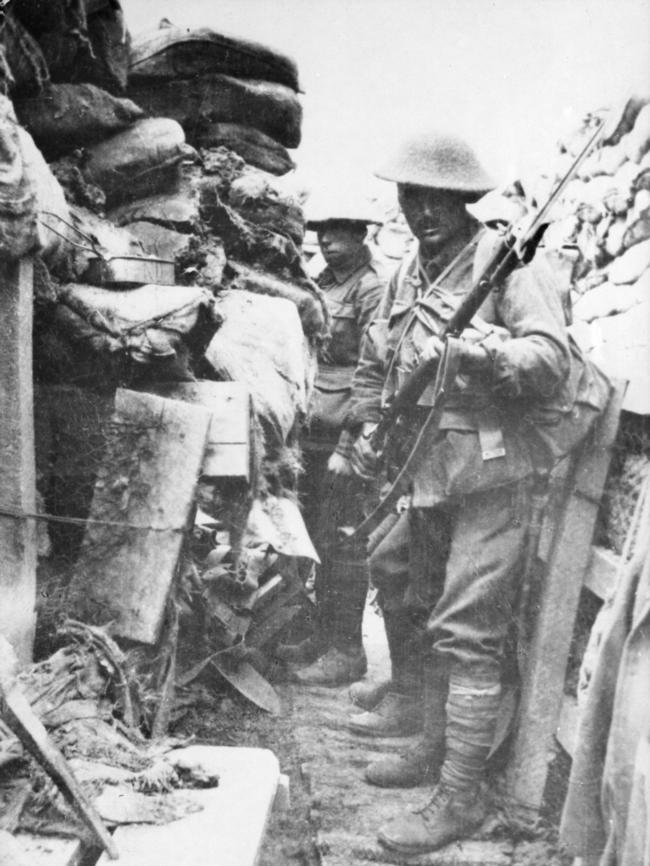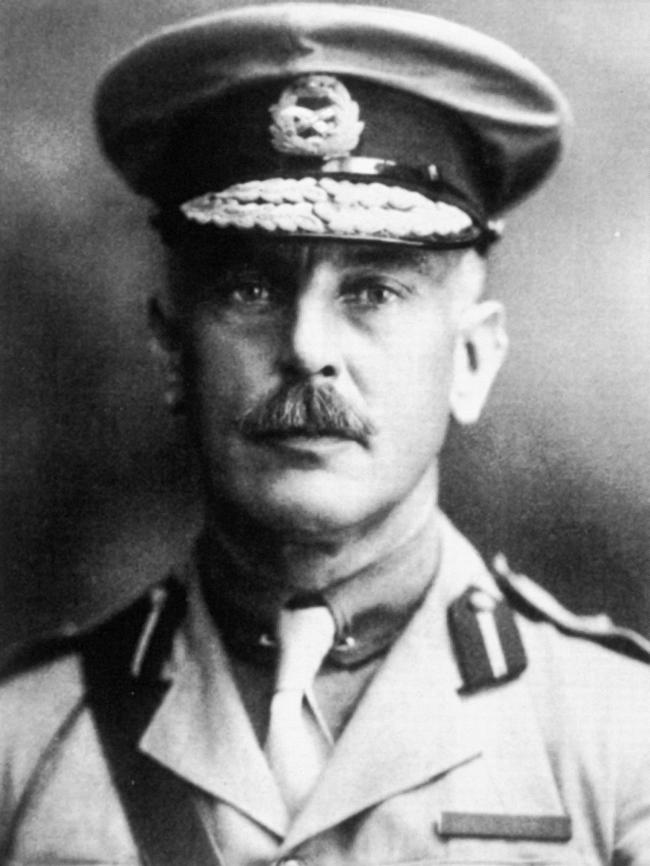James McCay, the boy from Antrim became great Australian parliamentarian and military leader
ONE of our greatest generals in World War I was born in Ireland and served in parliament before heading into battle.

Today in History
Don't miss out on the headlines from Today in History. Followed categories will be added to My News.
WHEN Anzac troops landed at Gallipoli nearly a century ago, there were many Irish-born men who went ashore, including a tall, handsome officer by the name of Colonel James McCay.
Despite being shot twice through his cap, once through his sleeve and once in the leg he survived Gallipoli to rise to the rank of general. Although his reputation would take a battering after the disaster of the battle of Fromelles, some would say he was the best general in the Australian Army in the war.
St Patrick’s Day is a day when many Australians either born in Ireland or with Irish forebears celebrate their heritage. It is also a time when all Australians can acknowledge Irish contributions to Australian history. This year, as the centenary of Gallipoli approaches, we remember the role played by Irish-born or Irish-descended Anzacs in World War I.
About 6600 Irish-born people served in the Australian military during the war, many with great distinction. McCay was perhaps one of the most famous at the time.
Born in Ballynure, Co. Antrim, in 1864, he was the son of a Presbyterian minister. The family migrated to Australia in 1865, settling in Castlemaine. Dux of his school, McCay studied classics, mathematics, logic and English at the University of Melbourne. In 1883 he took time off studying to teach. In 1885 he bought the Castlemaine Grammar School and became its principal, known as a stern disciplinarian who didn’t spare the birch.
Commissioned an officer with the 4th Battalion Victoria Rifles, he crammed in his army training between his principal duties, learned to read French, Italian and Spanish and sat on the local council from 1890.
Completing his degree in mathematics in 1892 he then studied law, finishing his degree in 1895, setting up practice as a solicitor in Castlemaine, also winning a seat in the Victorian parliament. He married Julia O’Meara, the daughter of a magistrate, in 1896 and moved up the reserve forces ranks to lieutenant-colonel in 1900, but lost his seat in parliament by opposing Australian involvement in the Boer War. He went to federal parliament in 1901, became defence minister in 1905 but lost his seat when his electorate was eliminated in 1906.
Appointed in 1907 to command the new Australian Intelligence Corps, he was promoted to full colonel, but annoyed some military leaders and his appointment was terminated in 1913.
When war broke out he was put in charge of censorship but was later called up to command the 2nd Infantry Brigade, AIF. During planning for the Dardanelles campaign he got on the bad side of commanding officer General Bridges who complained McCay was a lawyer who wanted to argue every order he was given. McCay’s brigade would be the second on the beach at Gallipoli on April 25, doing their best to maintain a foothold in the confusion of the landing.


Wounded by a bullet that broke his leg at Krithia in May, he was evacuated to Egypt to recover but returned in June, still not fully healed. In July when his leg snapped he was sent to Malta for surgery. While he was recovering in hospital his wife and father died. Sent home to Australia, he was given a hero’s welcome.
Promoted to temporary major-general, he was given the job of inspector-general of the AIF but he returned to the fighting in charge of the 3rd division. During an operation to relieve troops in Egypt he was left without transport by the poor planning of others and forced to march his men across open desert. He was unfairly blamed for mistreating his men.
During the Battle of Fromelles he was again blamed unfairly for someone else’s bad planning. But he managed to take objectives during the battle that earned him a mention in dispatches. Military commander Lieutenant-General Sir Cyril Brudenell White would later say McCay was “one of the greatest soldiers that ever served Australia … greater than Monash”.
He was knighted in 1918 and after the war McCay organised the repatriation of Australian troops. He returned to Australia in 1919 to act as business adviser to the federal government.
He retired from the military in 1923 and died in 1930.
Acknowledgments to Paddy Armstrong, who runs the United Irish Ex-Service Organisation, open to all Irish ex-servicemen. www.uiesaa.wordpress.com


